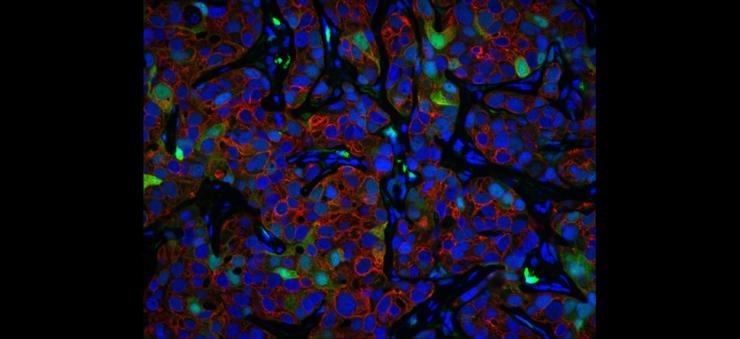About the Core

The primary focus Patient-Derived Xenograft (PDX) Core is to develop, and provide to the Baylor PDX community, computational and bioinformatics infrastructure to support large scale generation, characterization, and use of PDX models. PDX models from a variety of organ sites including brain, bladder, breast, head and neck, leukemia, pancreas, sarcoma and pediatric cancers are available. View our flyer. The core also provides expertise in transplantation and animal handling to those wishing to generate PDX from various cancer types. Finally, the core will coordinate, and assist with, the evaluation of experimental therapeutics using PDX platforms in conjunction with those investigators maintaining PDX collections for each organ/disease type.
All PDX work involving animals is conducted in dedicated housing and surgical suites in the Alkek Building for Biomedical Research of BCM, a fully AAALAC-accredited animal care and housing facility. Work is supported by the Center for Comparative Medicine (CCM) which administers the facility. CCM provides full veterinary care, administrative and regulatory oversight, and assistance with animal husbandry.
Organoids developed from PDX models (PDXOs) are now available from validated PDX models provided by the PDX core. Please see the Advanced Cell Engineering and 3D Models Core page for details and requests.
The core holds monthly PDX interest group meetings in which speakers discuss PDX-related studies or topics along with an opportunity for group discussion of PDX-related issues. In addition, the core holds monthly operational meetings. Core directors are available for individual consultations with interested investigators on an as-needed basis.
For detailed information on PDX models represented in the core, please visit our PDX Portal website. The PDX Core does not distribute PDX models listed on the portal from non-BCM institutions.
Acknowledgements of Core in Publications
Publications containing assay results, data, images or products generated by the core require citation in the acknowledgment section of the paper to include the core name, core personnel and any grants that directly support core operations (P30 Cancer Center Support Grant NCI-CA125123, CPRIT Core Facilities Support Grant RP220646). If authorship criteria are met by any of the core staff, then they must be included as authors on publications.
For publications utilizing the PDX Core:
Core name: Patient-Derived Xenograft Core
Personnel: Michael T. Lewis, Ph.D., Academic Director, Lacey E. Dobrolecki, M.S., Core Director.
Grants supporting the core: CPRIT Core Facility Award (RP220646) and P30 Cancer Center Support Grant (NCI-CA125123).








